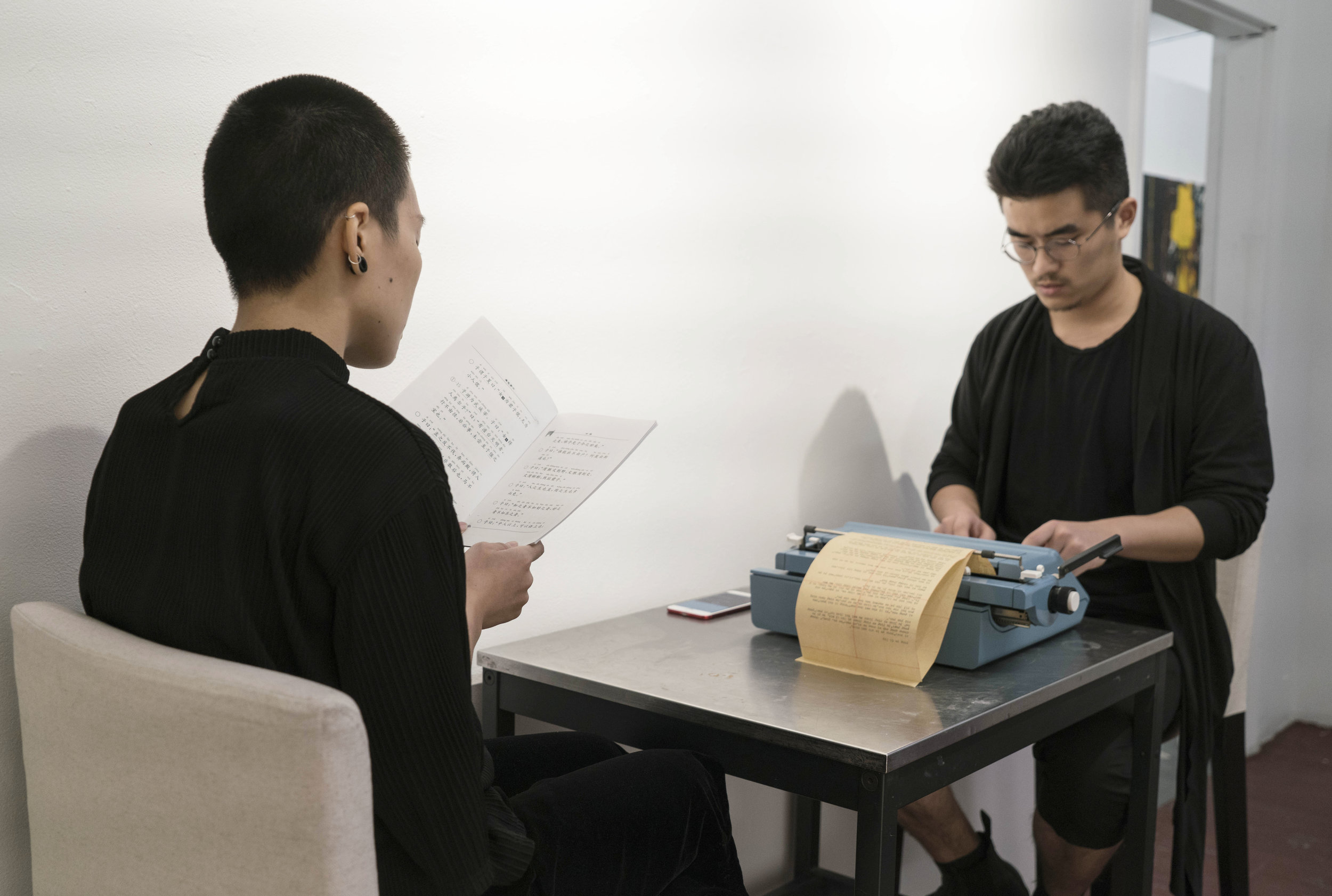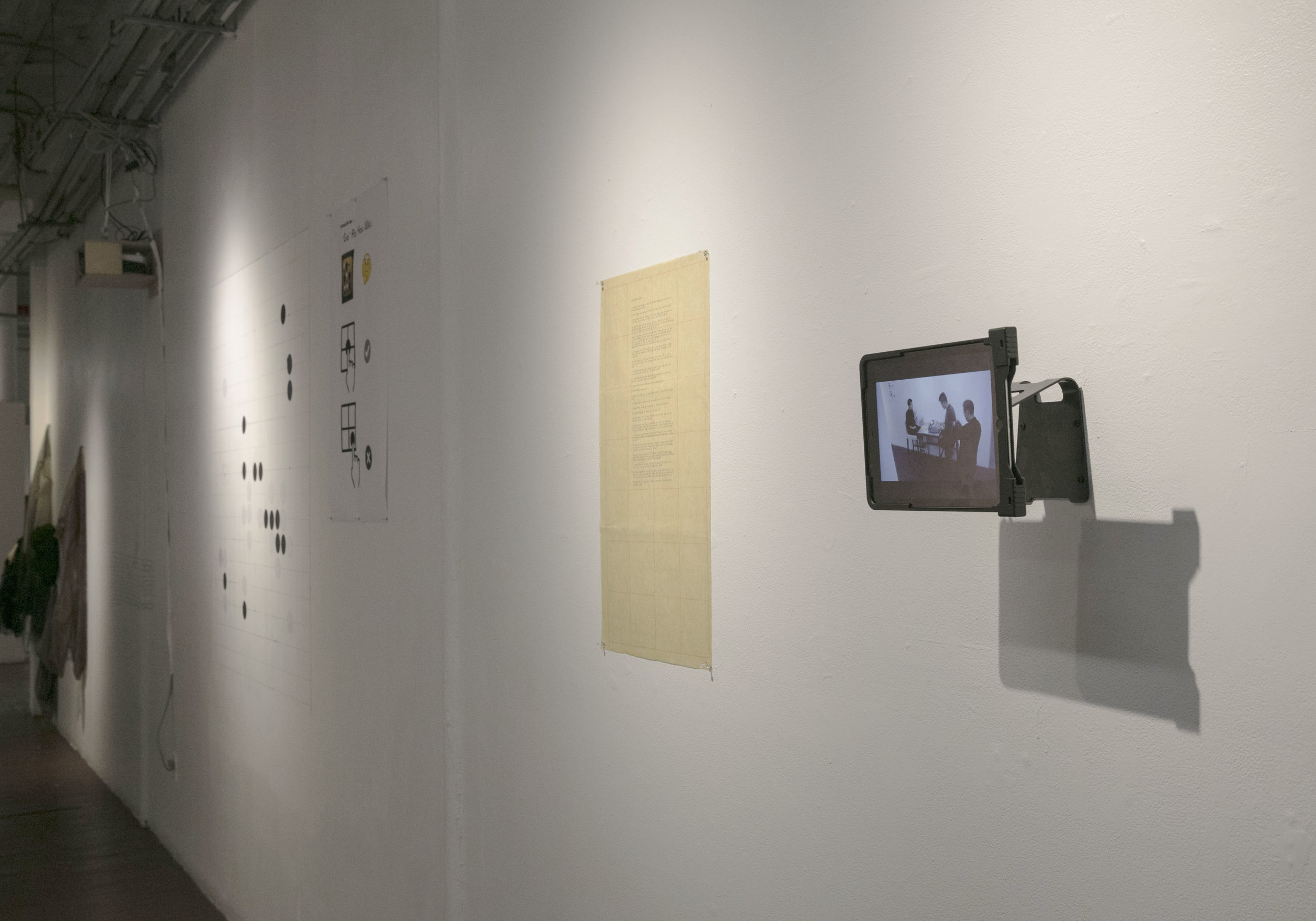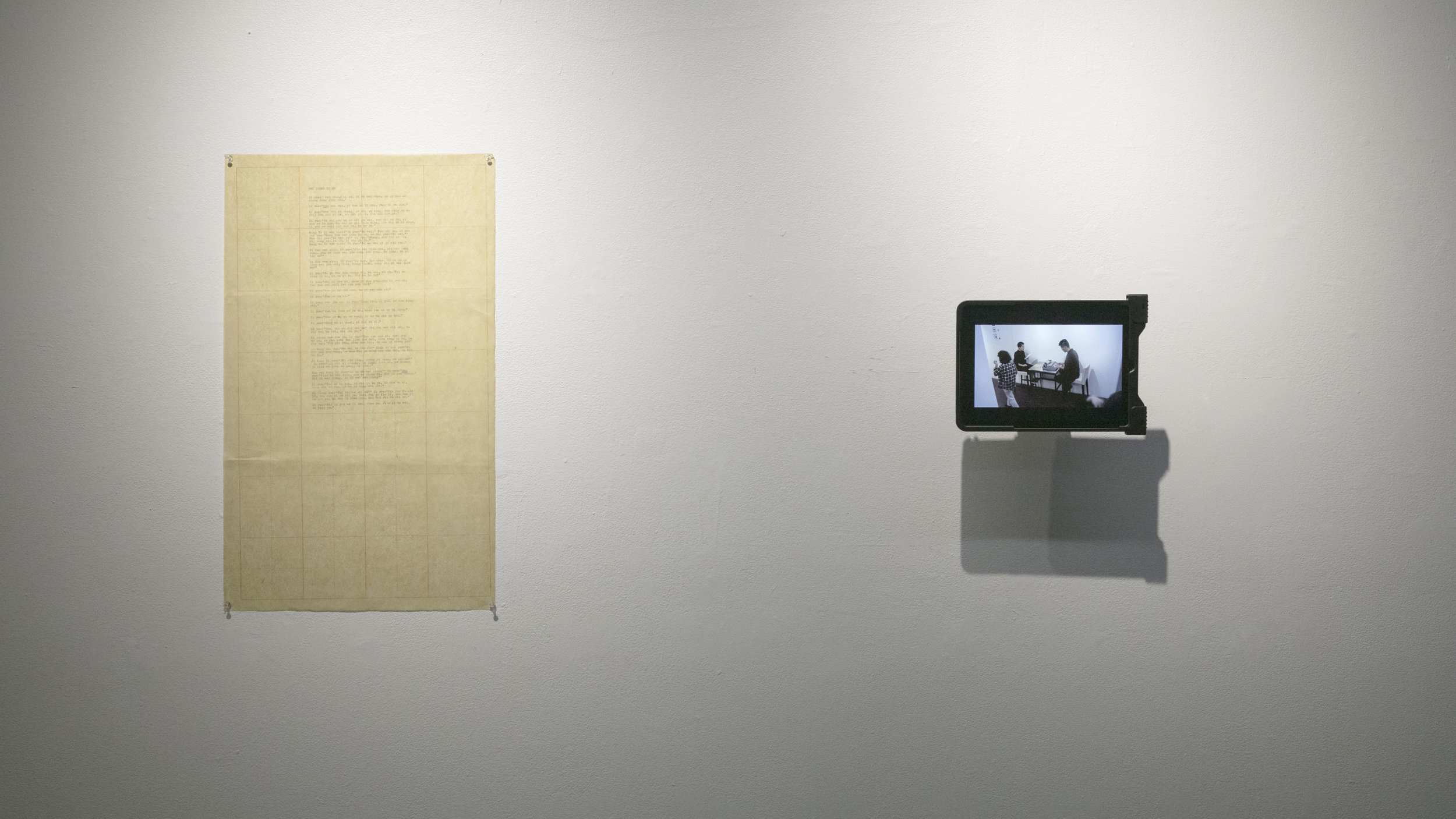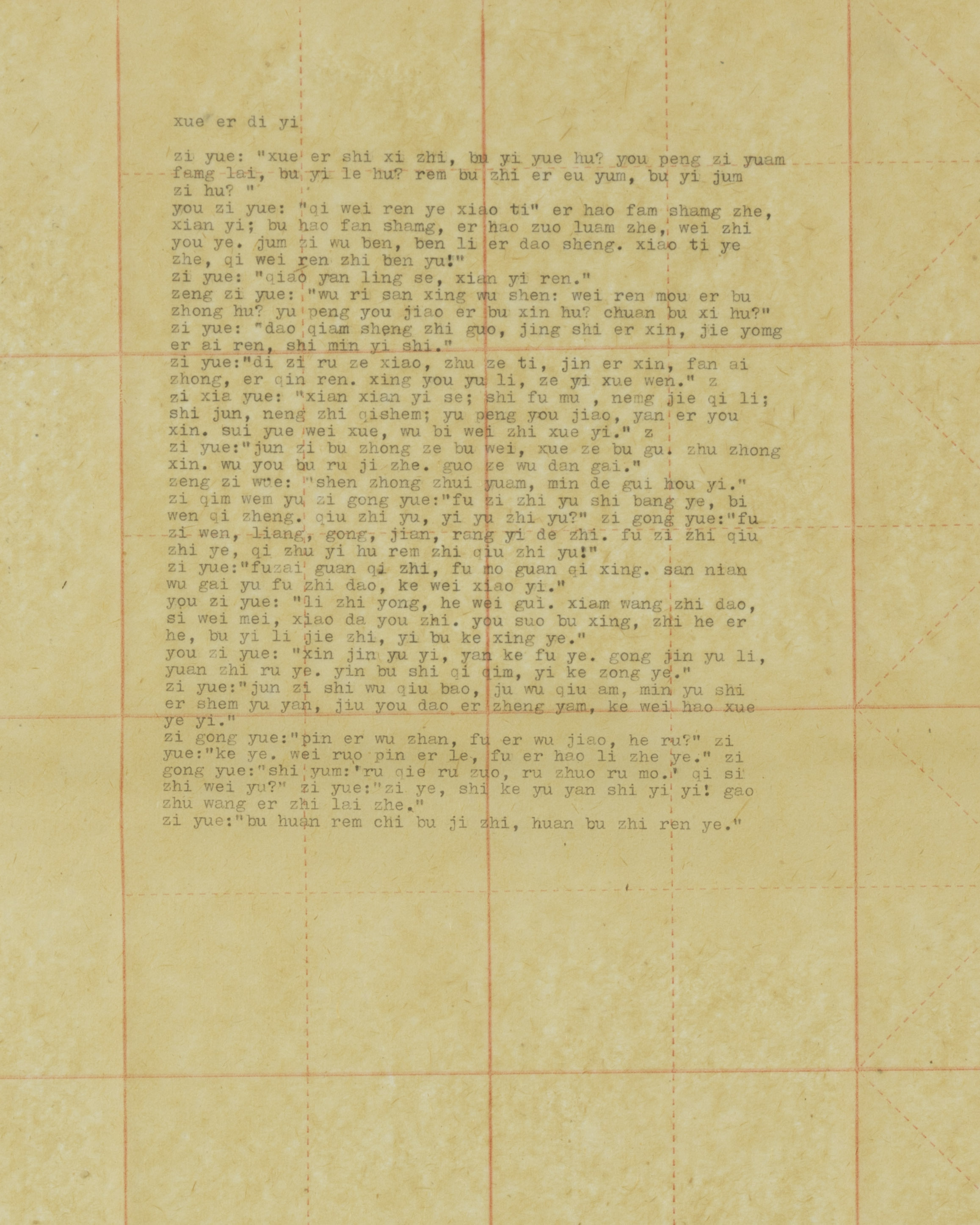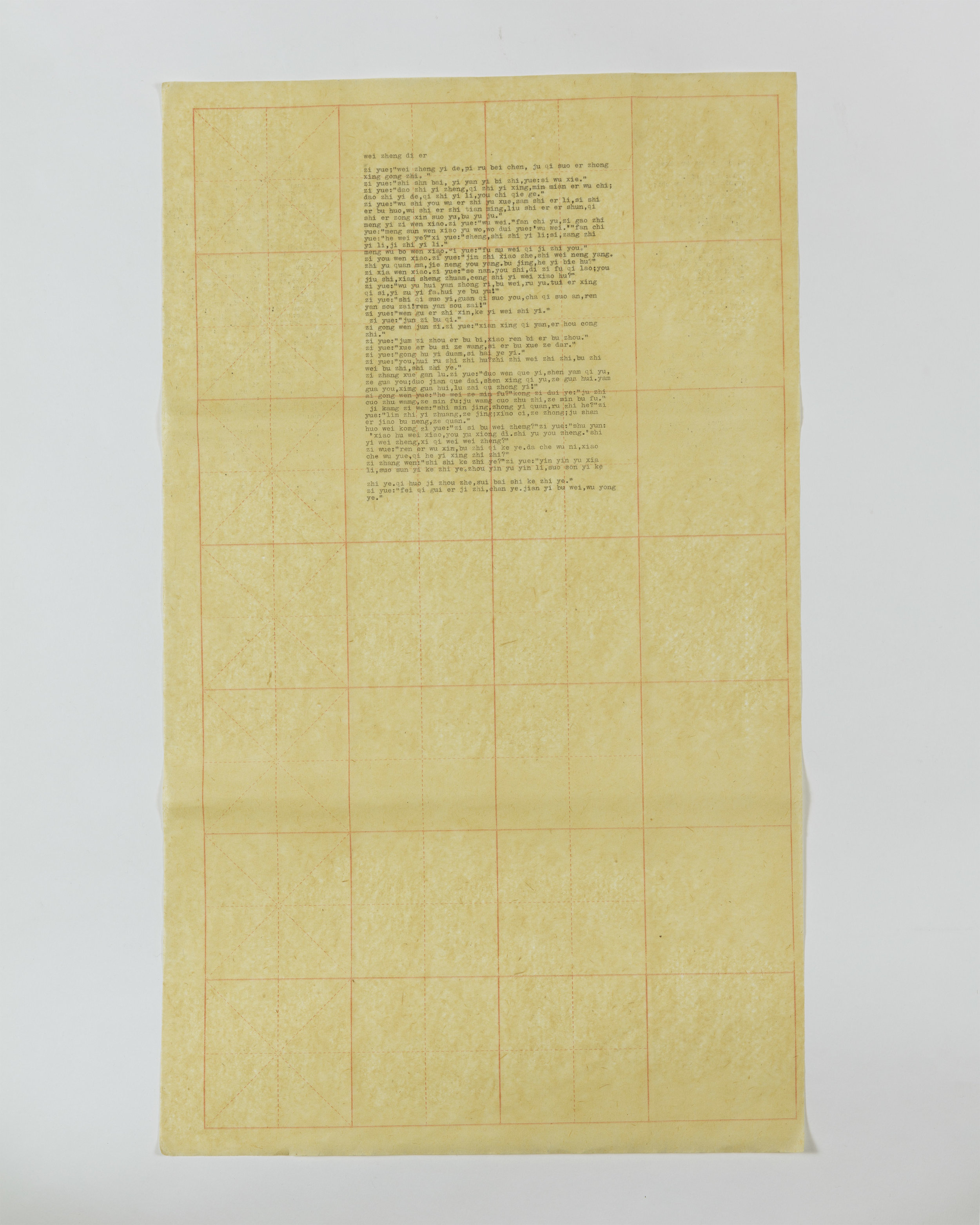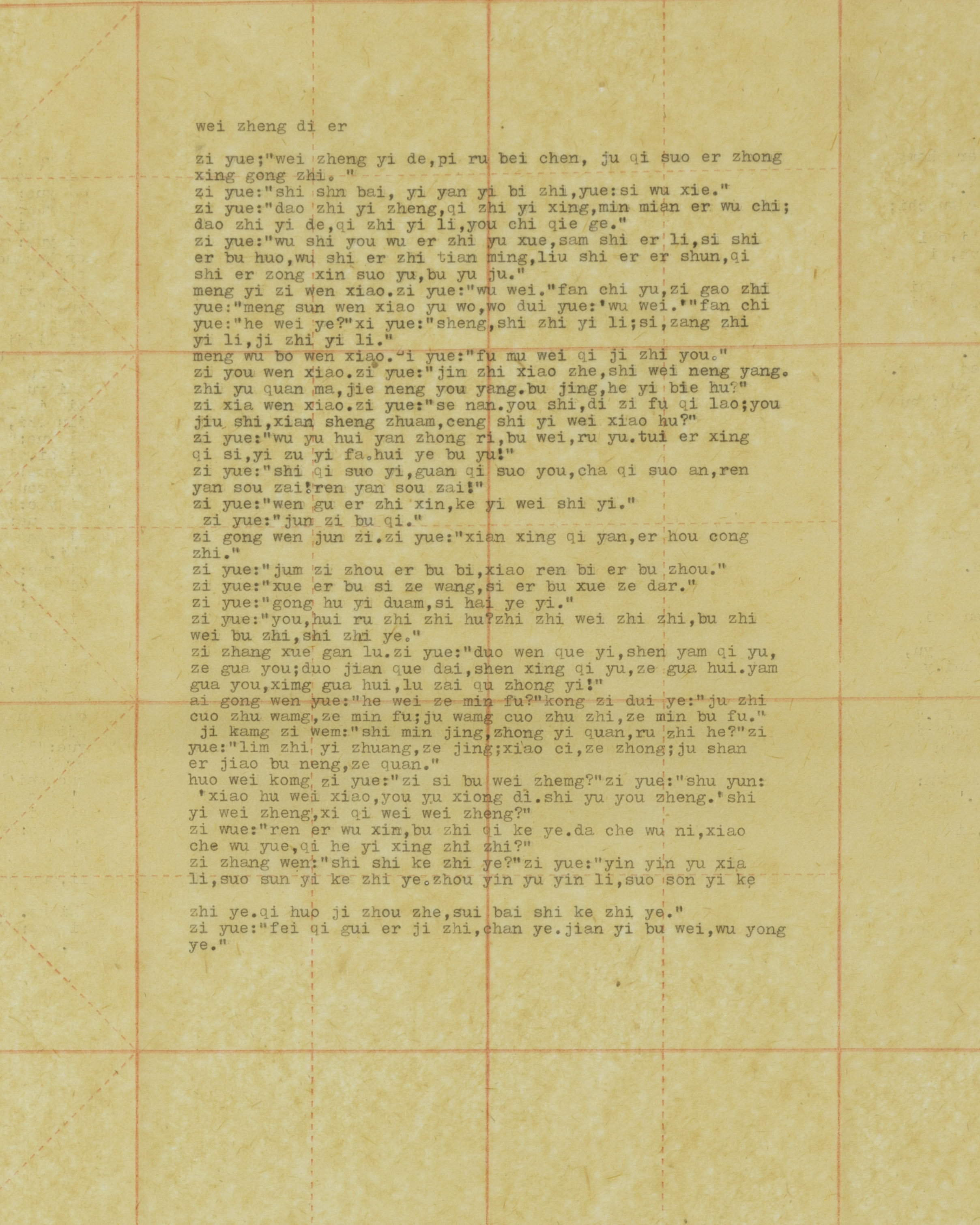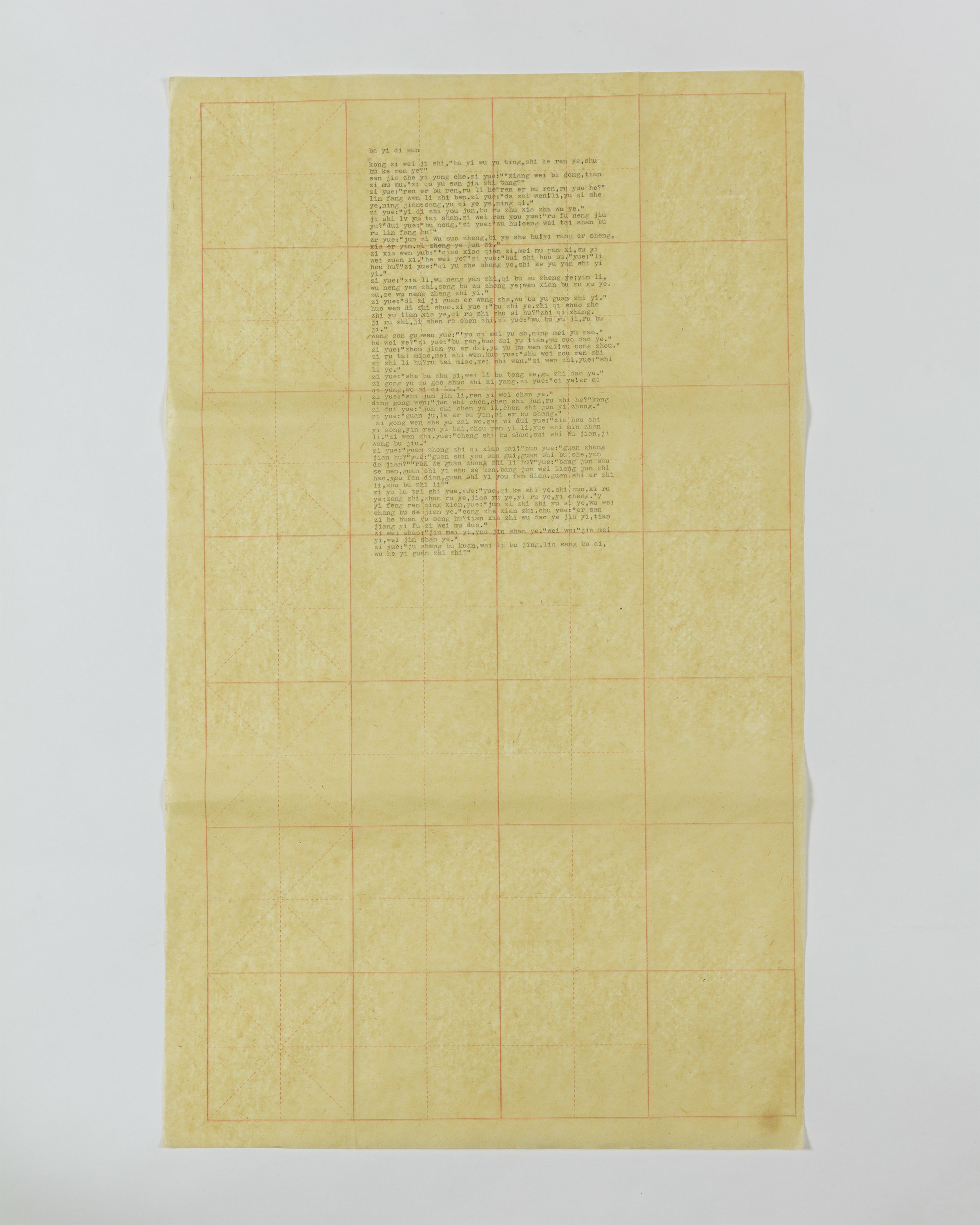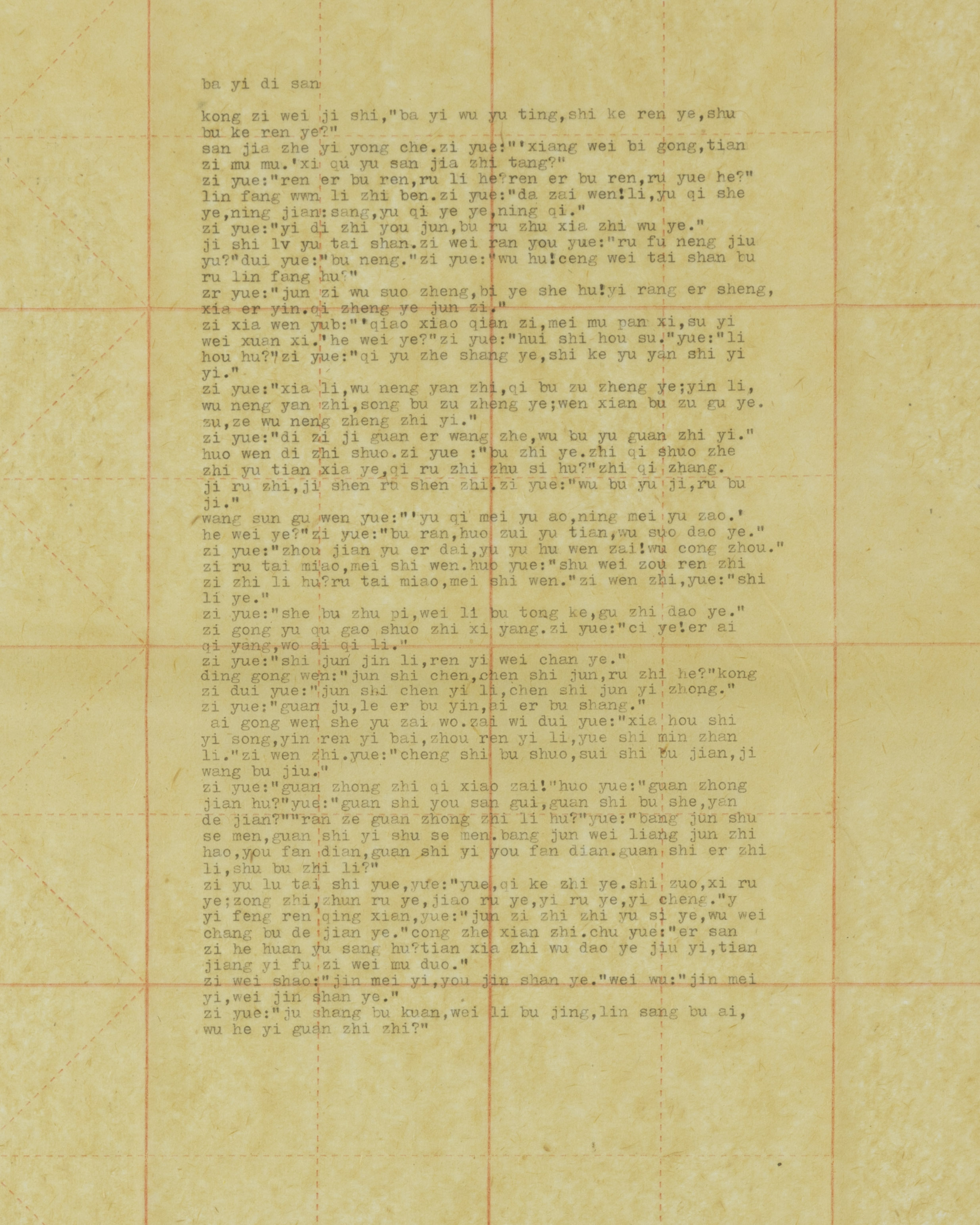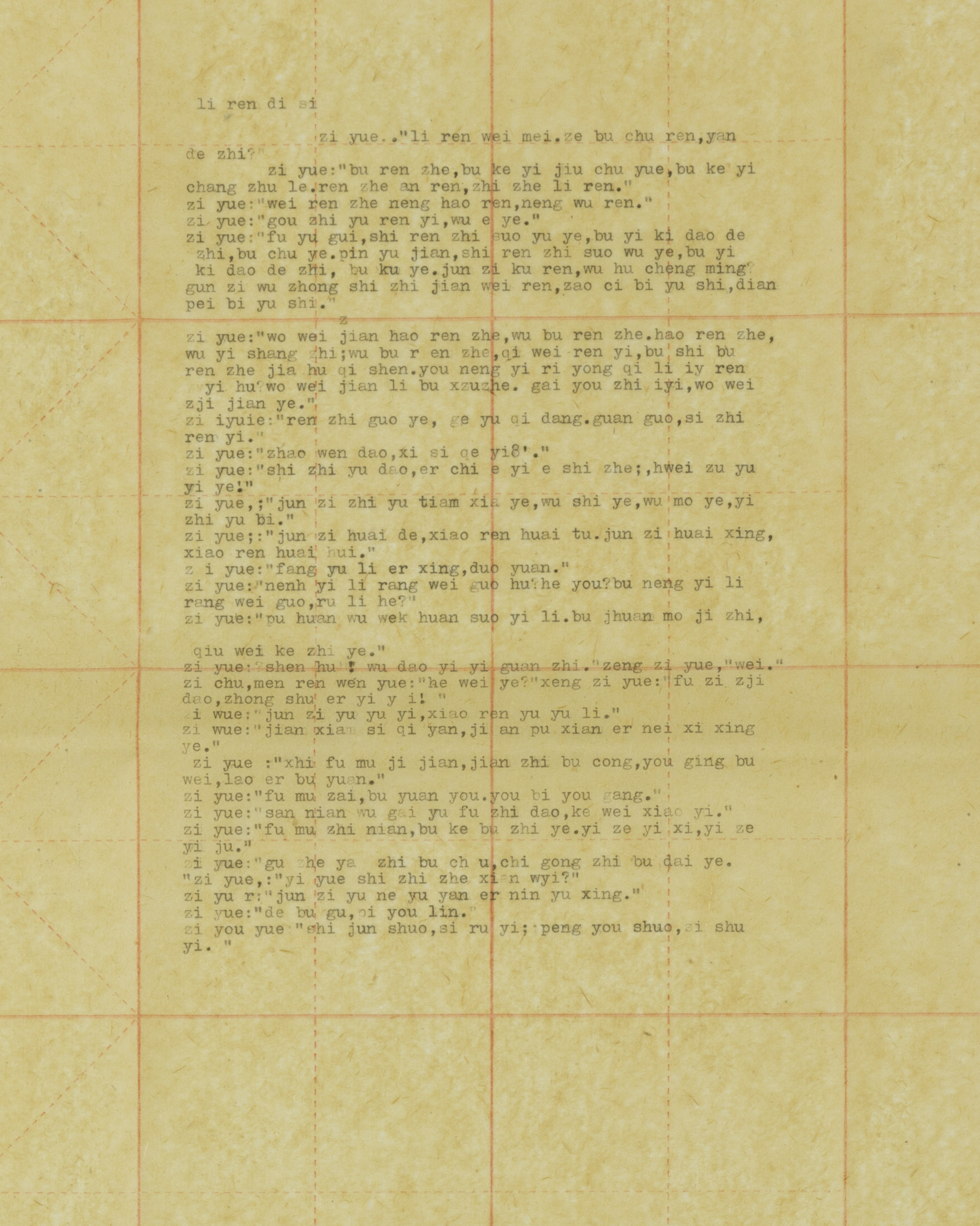l-u-n-Space-y-u
在这个项目中,我们以人人皆知的《论语》作为样本,重访近代以来汉语言的变迁史。基于这段历史,我们将《论语》的现代汉字文本拆解成拼音,再利用拼音与英语的相似之处将其剥离为“意义缺失”的语音符号。我们通过“创造”这种熟悉而又陌生的文本,并将其置于一个知识传授的规训剧场中进行行为表演,从而在“全球与本土”的二元对立叙事之外,试图重新思考文化在当下的复杂矛盾身份,以及重建本土文化和生存经验的可能性:不是充斥着政治和意识形态意味的“民族乌托邦”,也不完全是贝尔廷所倡导的“全球艺术(Global Art)”。
从《论语》到《lún yǔ》再到《L-U-N-Space-Y-U》,文化的本体在作品中变得愈发暧昧不清,但又同时给作品带来了越来越多的内在张力。正如当下全球视野中普遍发生的文化之间的挪用和虚拟再现一样,作品里的“文本”和“文本的产生方式”同时给中国观众和非中国观众带来了困惑——它的本体究竟是什么?是我们视为权威的“原文”,还是“他者”敲打出的字母组合,还是我们脑中不断在汉语、拼音、英文字母之间进行解码和转译的过程,抑或是向未来开放的那个不断改变的语言能指?
在探寻“文化边缘”的同时,主体-系统的元叙事设想也再一次失效,文化不再仅仅是历史长河中的一潭死水,我们也不再是文本的唯一合法主体。
We use the fundamental Chinese philosophy text, The Analects of Confucius, as a subject matter to revisit the modern history of transformation of Chinese language. We make the text into a "pinyin" version, a Roman transliteration of Mandarin Chinese, which is a system of meaningless phonetic symbols. We appropriate this familiar yet obscure text, and put it in a didactic and dictative circumstance to perform. During this process, we expect to find a new perspective of thinking beyond the binary narrative of “global and local.” It's neither the nationalist utopia with political and ideological undertones, nor the “Global Art” that Hans Belting proposed.
This project comes from our (generational, cultural) life experience, and expect to find a new perspective of thinking beyond the binary narrative of “global and local.” It's neither the nationalist utopia filled up with political and ideological undertones, nor the “Global Art” that Hans Belting recommended.
From 《论语 (The Analects of Confucius)》 to “lún yǔ” to “L-U-N (space) Y-U”, the culture itself becomes ambiguous in this work. Just like cultural appropriation and cultural imitation around the globe, the text in this work and the way of generating the text confuse both Chinese audience and non-Chinese audience: what is this work? Is it the original text that we regard as the authority, or the combination of letters that made by “others”? Or are they the constant decoding and translating processes among Mandarin, Pinyin and English letters? Or even the ever-changing linguistic signifier that opens up possibilities for the future?
While exploring the verge of cultures, the temptation to create the metanarrative of subject-system has failed. Culture has not been the dead water in the river of history, and we as Chinese are no longer the only legitimate subjects of this text anymore.
Documentations of performance and installation view, yong ye di liu, in "Manifestos Unheard", 2017
Documentation of Performances, 2017
lun yu (xue er di yi) - María del Mar Hernández Gil de Lamadrid
lun yu (wei zheng di er) - Zeshan Ahmed
lun yu (ba yi di san) - Arash Fewzee
lun yu (li ren di si) - Isadora Rezende Waddington
